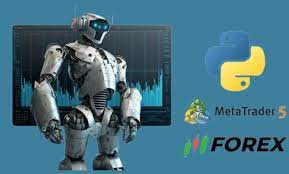In the fast-paced world of foreign exchange (forex) trading, where every fraction of a second can make a significant difference, traders are constantly seeking ways to gain an edge. One of the tools gaining popularity in recent years is the forex robot, also known as an automated trading system or algorithmic trading software. These robots are designed to execute trades on behalf of the trader based on predefined criteria and algorithms. But just how effective are these automated systems, and what role do they play in the forex market?
Understanding Forex Robots
Forex robots are essentially computer programs that use mathematical algorithms to analyze market data and make trading decisions. These algorithms are typically based on technical analysis indicators, such as moving averages, RSI (Relative Strength Index), MACD (Moving Average Convergence Divergence), and others. Some advanced robots may even incorporate machine learning techniques to adapt to changing market conditions.
These systems can operate on various timeframes, from short-term scalping to long-term trend following, depending on the trader’s strategy and preferences. Once deployed, the robot continuously monitors the market, identifies trading opportunities, and executes trades without human intervention.
Advantages of Forex Robots
- 24/7 Trading: Unlike human traders who need rest, forex robots can operate around the clock, taking advantage of trading opportunities in different time zones.
- Emotion-Free Trading: Emotions like fear and greed can cloud human judgment and lead to irrational decisions. Forex robots operate based on predefined rules, eliminating emotional bias from the trading process.
- Backtesting and Optimization: Before deploying a forex robot in live trading, traders can backtest it using historical data to evaluate its performance under various market conditions. They can also optimize the robot’s parameters to improve its profitability.
- Speed and Efficiency: Forex robots can execute trades at lightning speed, enabling them to capitalize on fleeting opportunities that may not be feasible for manual traders.
Challenges and Limitations
- Over-Optimization: While backtesting and optimization are essential, there’s a risk of overfitting the robot to historical data. This can lead to poor performance in real-market conditions where the dynamics may differ.
- Technical Failures: Like any software, forex robots are susceptible to technical glitches and bugs, which can result in unexpected behavior and losses.
- Lack of Adaptability: While some robots incorporate adaptive algorithms, many are rigid and unable to adapt to sudden changes or unexpected events in the market.
- Market Risks: Forex trading inherently carries risks, and automated systems are not immune to losses. Moreover, black swan events or sudden market volatility can lead to significant drawdowns or even wipe out entire accounts.
The Role of Forex Robots in Trading
Forex robots have carved out a niche in the trading landscape, attracting both novice and experienced traders. They serve as a valuable tool for executing trading strategies efficiently and systematically. However, they are not a substitute for human judgment and expertise. Successful traders often use robots as part of a broader trading toolkit, combining automated systems with manual analysis and discretion.
Moreover, the effectiveness of a forex robot depends on various factors, including the quality of its algorithm, risk management parameters, market conditions, and the trader’s skill in deploying and managing the system.
Conclusion
Forex robots have revolutionized the way traders approach the currency markets, offering speed, efficiency, and automation. While they offer several advantages, they are not without their challenges and limitations. Traders should exercise caution and due diligence when selecting and deploying forex robots, understanding that they are tools that augment, rather than replace, human expertise in trading. As technology continues to evolve, the role of automated systems in forex trading is likely to grow, but human judgment and oversight will remain indispensable in navigating the complexities of the financial markets.


